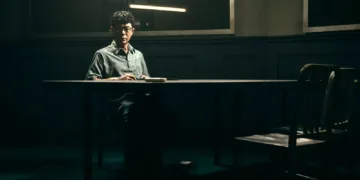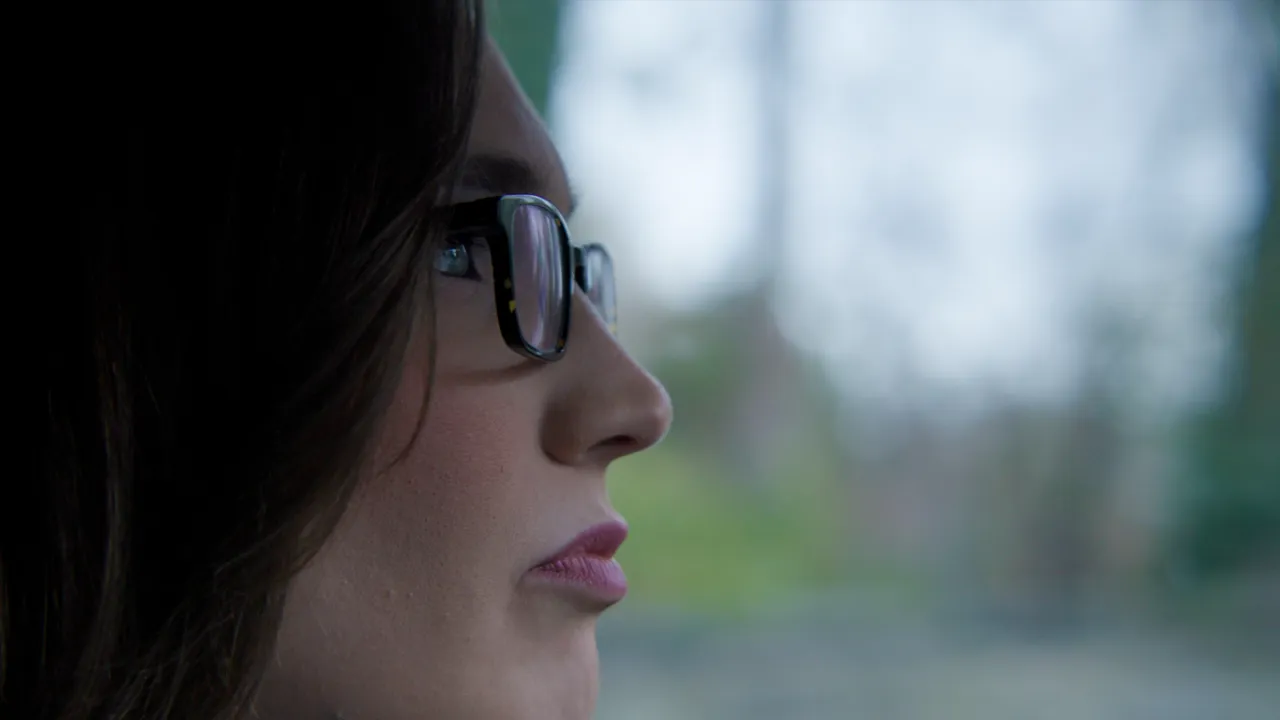The political documentary often follows a well-worn path, chronicling the rise, the fall, or the fight of its subject. Chase Joynt’s State of Firsts begins on this familiar road but understands its journey is fundamentally different.
The film follows Sarah McBride’s 2024 bid to become the first openly transgender member of Congress, a goal that immediately establishes the story’s central conflict. This is not simply about one person running for office. It is about a person attempting to run on a platform of policy—healthcare, paid family leave, economic stability for Delawareans—while being relentlessly framed by her identity.
Joynt’s camera stays close, adopting an observational style that is less about political commentary and more about capturing the dissonant experience of its subject. We are invited to watch a candidate navigate two campaigns simultaneously: the one for votes in her home state, and the one for her own narrative in a deeply fractured national consciousness.
Running the Playbook
For its first act, the film constructs a narrative that would be recognizable in almost any campaign documentary. It methodically builds its foundation with the familiar texture of American politics.
We see the retail-level work performed with an earnestness that feels both genuine and strategically necessary: McBride knocking on doors, her posture open, her pitch refined; McBride at local roundtables, listening intently to constituent concerns.
The film’s structure in this portion is deliberately conventional, mirroring McBride’s own strategy to be seen as a workhorse candidate. It makes a point to detail her key policy positions on paid family leave and healthcare access, reinforcing her core message that her identity is an attribute, not an agenda.
The narrative is populated with the authentic hum of a political operation. The camera captures behind-the-scenes moments with her campaign team, particularly her stressed but determined campaign manager, who acts as a grounding force and a barometer for the campaign’s pressure.
These glimpses into logistical planning and message discipline serve to demystify the process while simultaneously highlighting its intensity. By dedicating significant screen time to these procedural elements, the documentary consciously avoids the biographical.
It is not interested in McBride’s past; its focus is locked on the present-tense mechanics of the campaign. This choice establishes a baseline of political normalcy, a steady rhythm of work and preparation that makes the chaotic narrative shift to come feel like a sudden and unwelcome disruption.
From Policy to Personhood
The film’s narrative structure pivots sharply when the race outgrows its local container and becomes a national flashpoint. The story’s stakes, and its very nature, transform. The attacks begin as whispers, with her opponent’s pointed refusal to debate, but soon escalate into the loud shouts of national political advertising.
The film’s integration of archival news clips, particularly TV spots from the presidential race that single out transgender people, functions as a powerful storytelling device. It injects an external, hostile force directly into the narrative, widening the film’s scope from a single congressional district to an entire country’s culture war. The effect is jarring, pulling both McBride and the viewer out of the specifics of Delaware politics and into a much larger, more menacing arena.
After she wins her seat, the conflict sharpens to a point that is both absurd and deeply serious: a congressional effort, led by Rep. Nancy Mace, to bar McBride from using the women’s restroom on Capitol Hill. Here, the documentary excels at showing how political posturing inflicts real, dehumanizing consequences. The camera captures McBride’s poised but weary reactions as her right to exist in a public space becomes a matter of national debate.
Joynt intelligently complicates this by including criticism from McBride’s own supporters, some of whom wish for a more activist response. This decision is crucial, as it prevents the story from becoming a simple tale of right versus left. It instead illustrates the impossible tightrope a figure like McBride must walk, balancing the demands of being a symbol with the pragmatic requirements of being an effective legislator. Her performance in these moments is a study in restraint, her public composure a stark contrast to the private toll the film intimates she is paying.
The Quiet Center
Where State of Firsts finds its most potent and lasting voice is in the quiet moments, away from the press conferences and the manufactured outrage of the Capitol hallways. The film’s most revealing scenes unfold in the transitional space of a car ride between events or in the warmth of a family living room as a speech is collectively drafted.
These scenes are not incidental; they are the heart of the documentary’s argument. The car, a classic setting in observational docs, becomes a confessional booth on wheels, a place where the mask of the politician can be lowered. In these moments of transit, we see McBride’s thoughtfulness and her droll sense of humor, small glimpses of the person tasked with carrying such a historic weight.
The narrative finds its emotional core when the director’s off-screen voice gently asks, “How are you doing?” The question, simple and direct, pierces the public-facing armor. It reframes the subject not as a pioneer or a politician, but as a person enduring immense pressure.
The film’s ultimate success lies in this humanization. The final impression is not of a political victory, but of a person’s profound resilience and character. By structuring the film to move from the broad, conventional political sphere into these deeply personal spaces, Joynt makes a powerful statement.
The documentary suggests that to understand the true nature of our political moments, one must first understand the character of the people at their center. It is a compelling character study disguised as a political film.
Full Credits
Director: Chase Joynt
Writer: Chase Joynt
Cast / Featured: Sarah McBride
The Review
State of Firsts
State of Firsts succeeds by transcending the conventions of the political documentary. While it begins with a familiar look at campaign mechanics, the film pivots into a thoughtful and deeply humanizing character study. It intelligently captures the immense pressure faced by a political pioneer, focusing on the quiet, personal moments where Sarah McBride’s resilience is most profound. It is a compelling and essential look at the person behind the historic title, revealing the character required to navigate a political world that seeks to define you.
PROS
- An intimate and powerful character study of Sarah McBride.
- Intelligent narrative structure that builds from a conventional campaign doc into something more profound.
- Effectively captures the personal toll of being a political trailblazer.
- Nuanced approach that avoids simple hero-worship.
CONS
- Its initially conventional approach may feel familiar before the film’s focus sharpens.
- Viewers seeking a broader political analysis may find its tight focus on McBride’s perspective limiting.



















































